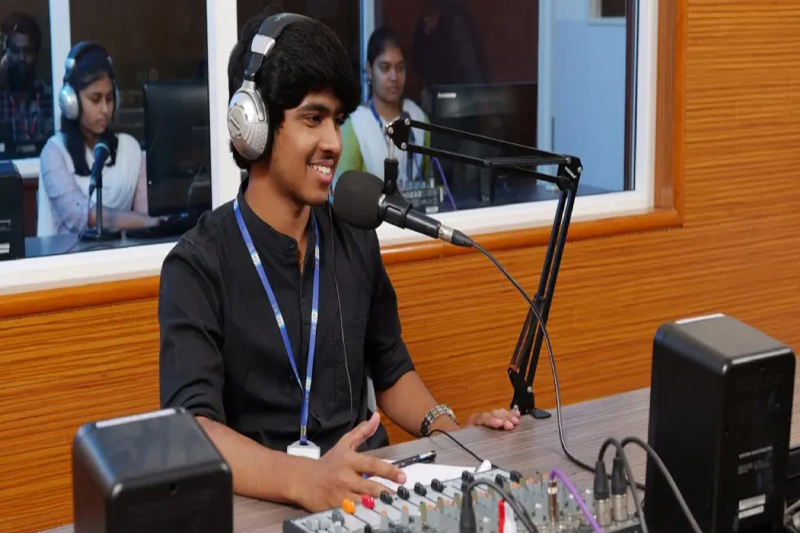
CBSE to Launch Exclusive Community Radio Station for Students and Teachers
The Central Board of Secondary Education (CBSE) is set to pioneer educational communication by launching its own community radio station exclusively dedicated to students, teachers, and other stakeholders. This decision, approved during the recent Board's Governing Body meeting, signals a new chapter in CBSE’s efforts to provide accessible, relevant, and engaging educational resources.
Approval and Next Steps
The proposal to establish the community radio station was unanimously approved at the governing body meeting. The CBSE will now proceed with the formal process of applying for a community radio license. According to senior officials, consultative meetings with experts and stakeholders will be held over the next six months to refine the plan and prepare the detailed application for submission.
The board will also examine the financial implications of setting up and running the station, ensuring that the model is sustainable in the long term. Once the license is secured, CBSE will finalize the modalities of content creation, programming, and broadcast schedules.
Why a Community Radio Station?
The CBSE has already demonstrated its commitment to audio-based educational outreach through its Shiksha Vani podcast, which delivers timely and curriculum-aligned content for students in grades 9 to 12. Available on the Play Store for Android users, Shiksha Vani has uploaded around 400 episodes covering various subjects lucidly and seamlessly, which align with the NCERT curriculum.
While Shiksha Vani has been successful, it operates as an on-demand podcast platform. The new community radio station will provide real-time broadcasts, creating a more dynamic and interactive experience. Unlike podcasts, which require internet access, community radio can reach listeners with a simple FM radio receiver, making it particularly valuable in rural and remote areas with limited connectivity.
Understanding Community Radio
Community Radio represents India's third tier of radio broadcasting, public service broadcasting (such as All India Radio), and commercial radio stations. These stations are:
- Low-power transmitters are designed for local coverage.
- Operated by non-profit entities, including educational institutions, NGOs, and community-based organisations.
- Focused on local issues and participation, often broadcasting in regional languages and dialects.
The Government of India actively promotes community radio, particularly in rural and underserved regions, as a tool for social change and inclusive communication. According to official statistics, 540 commissioned community radio stations are currently in the country.
Potential Benefits for the CBSE Community
The CBSE’s community radio station will serve multiple purposes, including:
- Curriculum Support: Broadcasting lessons, exam tips, and revision content for students, particularly those preparing for board examinations.
- Teacher Development: Sharing best teaching practices, training modules, and expert talks to help educators stay updated with modern pedagogical approaches.
- Parental Engagement: Providing information and guidance to parents on supporting their children’s education.
- Awareness Campaigns: Covering essential topics like mental health, nutrition, physical fitness, and digital literacy.
- Student Voices: Offering a platform for students to showcase talent, share experiences, and discuss youth issues.
Local Language Advantage
One of community radio's most powerful aspects is its ability to connect with listeners in their own language and dialect. This fosters stronger engagement and ensures that educational messages are understood by a wider audience, including marginalised sections of society.
By broadcasting in local languages, the CBSE’s radio station can reach learners who may struggle with content in English or Hindi, ensuring equity in educational access.
Learning from Shiksha Vani
The success of Shiksha Vani offers valuable lessons for the upcoming community radio project:
- Content Quality: Episodes must remain concise, engaging, and well-aligned to the curriculum.
- Diverse Formats: Including interviews, storytelling, quizzes, and panel discussions to keep the audience engaged.
- Regular Updates: Maintaining a steady schedule so listeners know when to tune in for fresh content.
The CBSE can expand on these strengths by using radio's live nature to incorporate interactive call-ins, student Q&A sessions, and live discussions on academic and co-curricular topics.
A Step Towards Inclusive Education
This initiative aligns with the National Education Policy (NEP) 2020's emphasis on leveraging technology and innovative media for inclusive education. However, unlike purely digital solutions, community radio bridges the gap for students without reliable internet access, ensuring last-mile connectivity in education delivery.
Moreover, radio can be an inclusive medium for learners with visual impairments, as it relies solely on audio content. This accessibility potential makes it a powerful tool for universal education.
What to Expect in the Coming Months
While the exact launch date has not been announced, the timeline will depend on:
- Completion of stakeholder consultations within the next six months.
- Approval of the community radio license by the concerned authorities.
- Infrastructure setup, including studio space, transmission equipment, and staffing.
- Pilot broadcasts to test content and audience engagement.
If all goes as planned, CBSE students and teachers may soon have a dedicated radio platform delivering academic and non-academic programming directly to their homes, classrooms, and communities.
Conclusion
With the approval to set up its community radio station, the CBSE is boldly broadening its communication channels and making learning more accessible, interactive, and community-oriented.
Building on the foundation of its Shiksha Vani podcast, this initiative will provide curriculum-linked learning and serve as a platform for voices from within the CBSE community. By combining the reach of radio with the depth of educational expertise, CBSE is set to strengthen its role as an innovator in school education in India.


